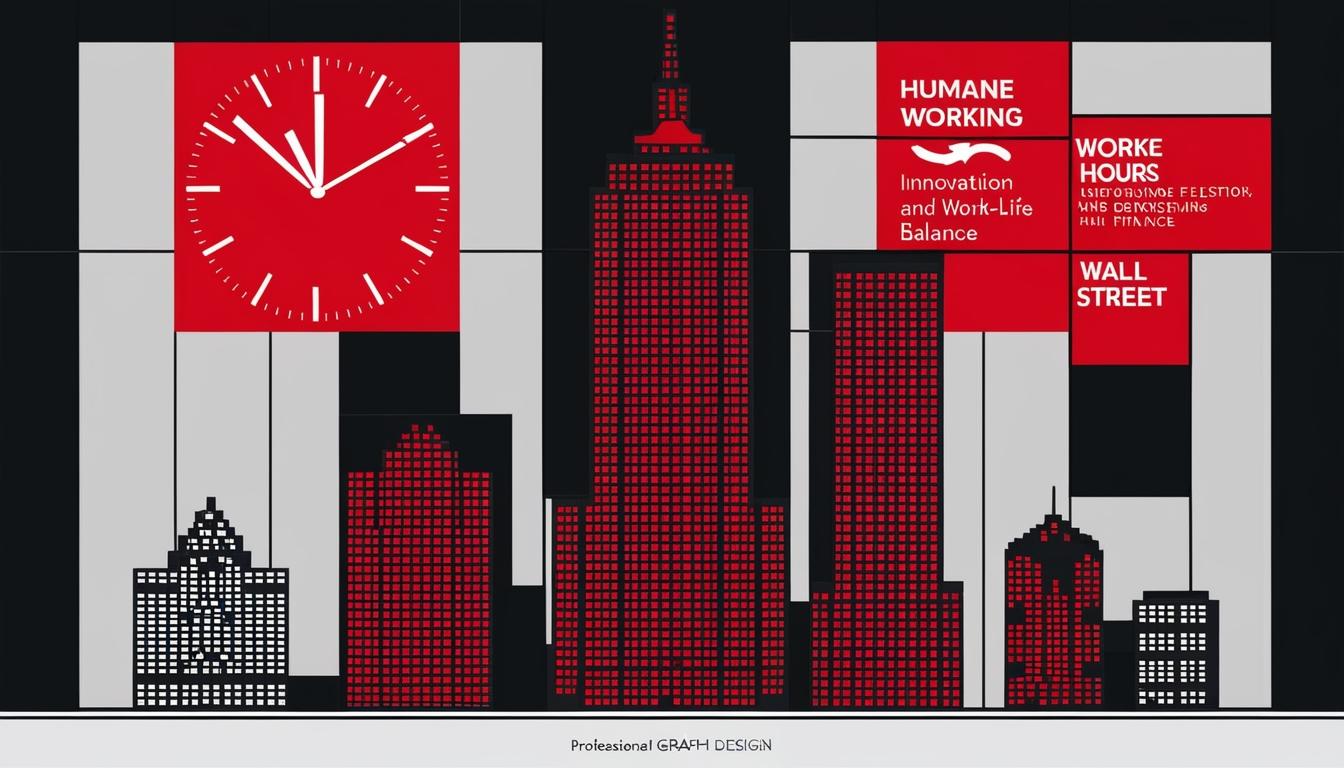Mosaic, a New York-based AI startup, is poised to revolutionise Wall Street by creating a work environment that allows for humane hours, aiming to reduce the grueling practice of working long nights for junior bankers. The company has developed innovative software designed to streamline the labour-intensive process of constructing financial models, a task traditionally requiring extensive manual calculations. This new technology enables users to input key figures, with the software subsequently handling the complex calculations and generating financial projections and forecasts.
Ian Gutwinski, the founder and CEO of Mosaic, emphasised the potential impact of their technology, stating, “The only way to really reduce the actual work is through technology.” He claimed that the software transforms what would ordinarily take 14 hours of work into a mere 15 minutes. Gutwinski, a former junior analyst himself, believes that this innovation will enhance worker productivity while also improving job satisfaction. He noted, “What we do is automate the lower value-added stuff,” highlighting that much of the time spent by junior bankers is allocated to relatively mundane tasks, such as formatting presentations.
The tool has already started to show its transformative effects in the finance sector. Gutwinski recounted instances of users completing work under remarkable circumstances, such as one individual who managed to build a financial model from a delivery room while their spouse was in labour. Another user expressed that they would have missed Thanksgiving with their family had they not utilised Mosaic, which allowed them to finish a time-sensitive deal quickly.
While Mosaic’s technology promises to assist bankers in managing their workloads more effectively, it arrives amidst a backdrop of increasing scrutiny regarding working conditions on Wall Street. The untimely death of Leo Lukenas, a former Green Beret and Bank of America analyst who suffered a blood clot due to the extreme conditions of 110-hour work weeks, has ignited discussions surrounding the grueling culture prevalent in the finance industry. Senior management's expectations often lead to similar 100-hour work weeks for junior staff, a situation Gutwinski described as reflective of a harsh apprenticeship mentality.
Despite the advancements in technology that have been introduced over the years, Gutwinski acknowledges that the fundamental culture of long hours persists. He attributes this to a mindset among senior leaders who believe that they endured similar conditions, and thus the junior staff must too.
Mosaic was conceived during Gutwinski’s tenure at Harvard Business School, initially created as a tool for private equity, but has since garnered attention from larger investment banks eager to adopt the technology. He noted that private equity behemoths such as Warburg Pincus and CVC have already integrated Mosaic into their operations, and he anticipates further announcements from major firms seeking to implement this software in the coming months.
With plans for expanded use in the financial sector and increasing interest witnessed as the new year approaches, Gutwinski remains realistic yet optimistic about the potential for change. He remarked, “Like any technology, there’s an adoption curve … but ultimately, this is going to be the way that people are doing this in the future.” As Wall Street braces for an uptick in deal volume in 2025, Mosaic stands at the forefront of a potential shift in how financial tasks are performed, with a focus on improving work-life balance for junior employees.
Source: Noah Wire Services
